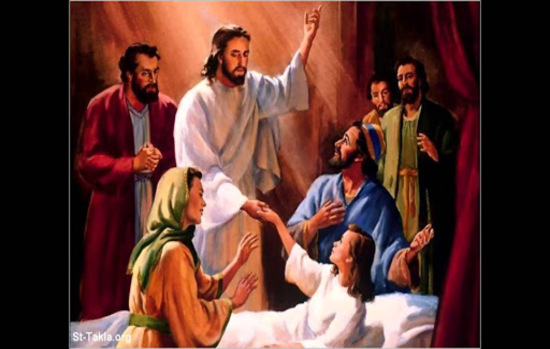
The Catholic Sacrament of Anointing of the Sick is a ritual of healing appropriate not only for physical but also for mental and spiritual sickness.
Traditionally referred to as Last Rites, the Sacrament of the Anointing of the Sick was previously most commonly administered to the dying, for the remission of sins and the provision of spiritual strength and health. In modern times, however, its use has been expanded to all who are gravely ill or are about to undergo a serious operation, and the Church stresses a secondary effect of the sacrament: to help a person recover his health. Like Confession and Holy Communion, to which it is closely linked, the Sacrament of the Anointing of the Sick can be repeated as often as is necessary.
The sacrament is administered by a bishop or priest, who uses oleum infirmorum/Oil of the Sick (olive oil or another pure plant oil blessed by a bishop) to anoint the patient’s forehead and perhaps other parts of the body while reciting certain prayers. It gives comfort, peace, courage and, if the sick person is unable to make a confession, even forgiveness of sins. Several other churches and ecclesial communities have similar ceremonies.
Who May Receive the Sacrament?
Following this biblical understanding, the Catechism of the Catholic Church notes that:
The Anointing of the Sick “is not a sacrament for those only who are at the point of death. Hence, as soon as any one of the faithful begins to be in danger of death from sickness or old age, the fitting time for him to receive this sacrament has certainly already arrived.”
When in doubt, priests should err on the side of caution and provide the sacrament to the faithful who request it.
The Form of the Sacrament
The essential rite of the sacrament consists in the priest laying hands on the sick, anointing him with blessed oil and praying “Through this holy anointing may the Lord in his love and mercy help you with the grace of the Holy Spirit. May the Lord who frees you from sin save you and raise you up.”
The Effects of the Sacrament
Received in faith and in a state of grace, the Sacrament of the Anointing of the Sick provides the recipient with a number of graces, including the fortitude to resist temptation in the face of death, when he/she is weakest; a union with the Passion of Christ, which makes his/her suffering holy; and the grace to prepare for death, so that he/she may meet God in hope rather than in fear. If the recipient was not able to receive the Sacrament of Confession, Anointing also provides forgiveness of sins.
For queries,
Fr. Thomas Kalariparambil, Pastor
Mrs. Rose Mary, Sacramental Coordinator
